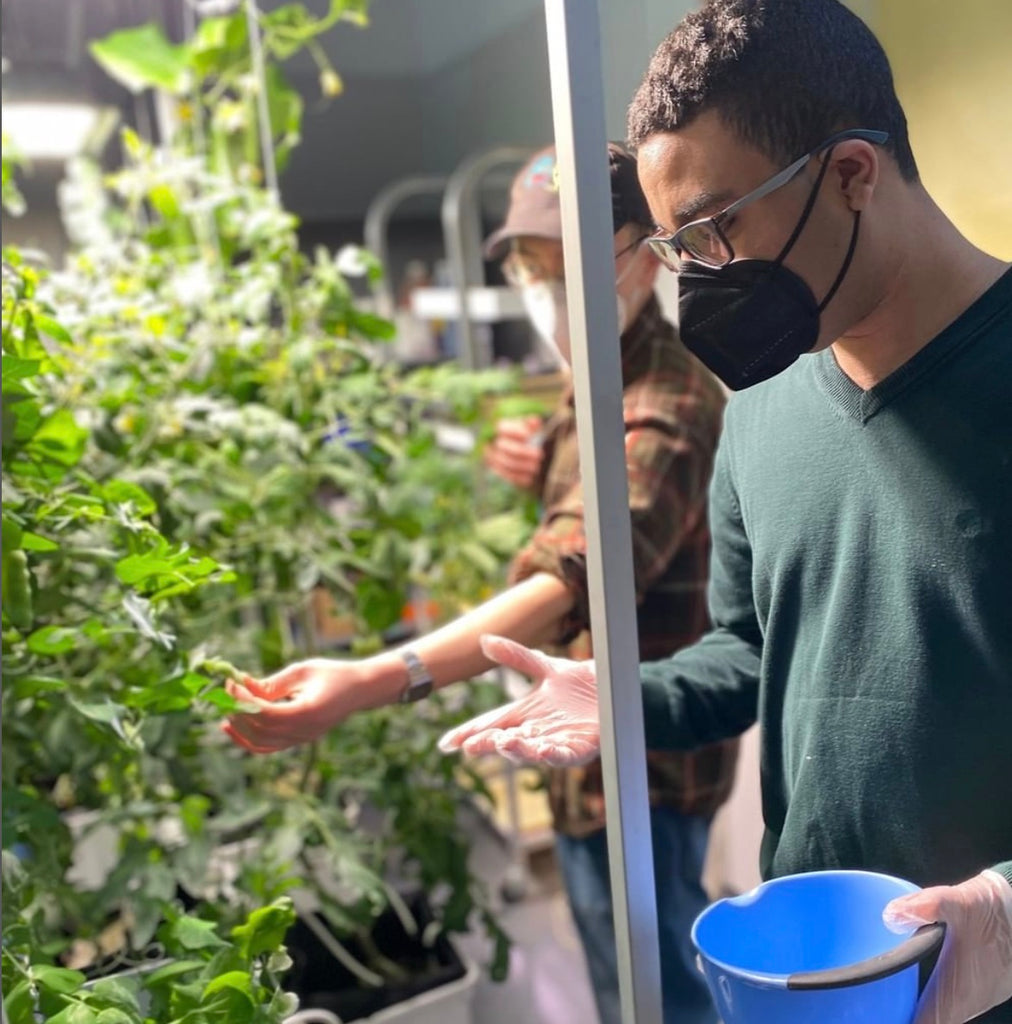For public school children in New York City, farm life often seems a world away. The nonprofit New York Sun Works is changing that, by bringing the farm—and the knowledge, skills and the produce that come along with it—to them.
The founders of what New York Sun Works has dubbed the Greenhouse Project Initiative wanted to connect kids to the earth and realities of growing food, while also introducing hydroponic farming technology as an opportunity for students and teachers alike to learn about the science of sustainability. Ultimately, the goal is to empower those future leaders to create solutions to the resource challenges we are facing across the globe.
This year, the program will have 85,000 kids in grades K-12 throughout the five boroughs and New Jersey harvesting crops from in-class hydroponic farms. We sat down with New York Sun Work’s executive director, Manuela Zamora, to learn more about this innovative program.
New York Makers: When did New York Sun Works officially launch, and how long was it in the works?
Manuela Zamora: New York Sun Works was established in 2004, with the prototype of what we do now on a barge in the Hudson River. We wanted to show what we were capable of, and produce healthy food in an urban environment. The premise was showing how we could lower the carbon footprint while still delivering healthy, nourishing food. About 10 years ago, we brought it into classrooms. Our projects have always had an educational component, but we wanted to focus on offering a year-round program to students in classrooms, K-12. In the classroom, this controlled agricultural environment provides food, educates children on the science and sustainability of growing all kinds of leafy greens, and fruits and vegetables that grow on vines. As part of the program, we can provide fish farms to schools; it’s a little more complicated though, because it requires a larger space for the tank and a structure to hold the heavy equipment.
NYM: What is the difference between hydroponic and traditional farming?
MZ: Hydroponic farming is a system to grow vegetables with water only, without the need of soil. It also uses 85%-90% less water than traditional farming. It works by having a reservoir filled with water, which you add nutrients to. The water is recycled, and the quality of water can be measured by the students to ensure the PH and nutrient levels are correct. This technology is more efficient in an urban environment, where people may not have the space to grow their greens or vegetables in soil, and the soil that is available may be impacted by pollution.
NYM: How does the program work exactly?
MZ: The students grow everything from the seed to harvest in the classroom. They choose the seeds themselves, and think about the why of what they choose. They also think about the why of what they’re doing, and the sustainability component of growing food in such an enclosed system; we talk about the science of climate change, and they see how their food can be grown, even in an urban environment, without a negative impact on the environment. They also learn how to use ladybugs to control pests, instead of chemical pesticides. That is a powerful lesson, and it’s truly the magic of the system as children see and perform simple processes that have an enormous impact.
NYM: How do you decide what schools you go to?
MZ: The schools come to us. We do offer informational sessions for schools to learn about how to access and receive funding, and then they can apply. Some schools have their own funding through the school budget, but in most cases, it is funded through the city budget, and we help them get that funding.
NYM: Are you in public and private schools?
MZ: About 98% of our schools are public. The private schools are independently funded. We serve everyone, and our ultimate goal is to serve students who most need us.
NYM: Are you currently only in New York City and New Jersey?
MZ: We are in the midst of planning an expansion to other urban centers, and we have a lot of requests. At this point, we can’t name specific cities, but we hope to soon. We install the labs ourselves, provide a curriculum connected to science and sustainability for each grade, and we are there to support them year-round. We also train our teachers in how to use the technology, we provide mechanical support, and we ensure that everything is operating smoothly. It is a very hands-on process, so we want to grow responsibly. When we do move to another city, we want to have a cluster of schools in one city with an available network of assistance within the city.
NYM: What are your priorities and goals with the program, and how do you track its effectiveness?
MZ: We try to track how each community and school performs. Every school and community is different; some struggle with the number of teachers we have, so we have internal performance indicators. We are interested in tracking how their test scores increase, but also how their social and emotional learning are impacted. We saw how incredible that learning can be during the pandemic, when we distributed hydroponic kits to students who were learning at home. We did a survey on the results of the experience, and teachers unanimously described their students as excited about the kits, and eager to use them. Teachers also told us how effectively the kits and our curriculum more broadly helps students learn science concepts, sparks their creativity, and boosts problem-solving skills.
TL; DR? A Quick Look at New York Sun Works:
Almost 250 hydroponic farm classrooms have been built in New York City public schools across the five boroughs
More than 85,000 students are enrolled in a New York Sun Works program this year
Each farm can produce up to 500 pounds of fresh vegetables annually
About one-third of the programs offer fish farms
Harvests can be distributed to schools and food pantries, addressing food insecurity
Students enrolled in the program scored 9 points higher on standardized science tests
During the pandemic, New York Sun Works distributed 12,500 STEM hydroponic kits for remote learning
A full K-12the grade curriculum can be used an aligned with science standards for easy integration
This year, a high school certificate program has been launched to give students marketable skills upon graduation


Leave a comment